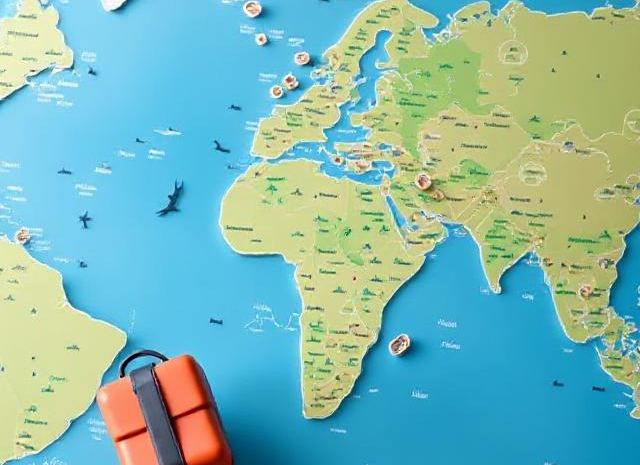
Does Personal Insurance Cover Travel-Related Emergencies?
Personal insurance can cover some travel-related emergencies, but it depends on the type of insurance you have and the specific circumstances. Here’s an overview of the different types of personal insurance that may help cover travel-related emergencies and the limits of each:
1. Health Insurance
Most traditional health insurance plans, including those provided through an employer or purchased individually, offer limited or no coverage outside of your home country.
What’s Covered:
- Medical emergencies: Some health insurance plans provide emergency medical coverage while you’re traveling. This may include treatment for injuries or illnesses that happen during the trip.
- Hospitalization: If you’re hospitalized due to an emergency, your health plan may cover the costs, but only within certain regions (e.g., within the U.S. or a specific network of doctors and hospitals).
What’s Not Covered:
- International Travel: Many health insurance plans don’t cover medical costs outside the U.S. or have limited coverage internationally. Without specific international coverage, you could end up paying out-of-pocket for medical treatment abroad.
Tip: If you’re traveling abroad, consider purchasing travel health insurance or a travel medical plan to ensure you’re covered in case of emergencies.
2. Travel Insurance
Travel insurance is designed to protect you from a variety of risks associated with traveling, including medical emergencies, cancellations, and trip delays.
What’s Covered:
- Emergency Medical Coverage: Travel insurance policies usually cover emergency medical treatment and hospitalization while you’re traveling, even internationally. This can include doctor visits, hospital stays, and medical evacuations if necessary.
- Medical Evacuation: If you’re injured or seriously ill while traveling, some travel insurance plans will cover the cost of medical evacuation, which includes transportation to the nearest medical facility that can provide the treatment you need, or back to your home country for care.
- Trip Cancellation/Interruption: If your trip is cut short or canceled due to an emergency (e.g., illness, family emergency, or natural disaster), travel insurance can cover non-refundable expenses such as flights, hotels, and tours.
- Lost Baggage: If your baggage is lost, delayed, or damaged, travel insurance can reimburse you for the cost of replacing essential items like clothing, toiletries, and medications.
What’s Not Covered:
- Pre-Existing Conditions: Some travel insurance policies may exclude coverage for pre-existing conditions unless you purchase a rider or additional coverage.
- Routine Medical Care: Travel insurance typically doesn’t cover routine medical visits like a physical or prescription refills.
Tip: Look for travel insurance that includes trip interruption, medical evacuation, and lost baggage coverage to ensure you’re adequately protected during your trip.
3. Credit Card Travel Insurance
Some credit cards, particularly travel or premium cards, offer travel-related insurance as part of their benefits when you use the card to book your trip.
What’s Covered:
- Trip Cancellation/Interruption: If your trip is canceled or interrupted due to a covered reason (e.g., illness, severe weather, or natural disaster), some credit cards will cover non-refundable expenses.
- Travel Delay: Coverage for additional expenses (e.g., meals, lodging) caused by a travel delay due to a covered reason.
- Lost or Delayed Baggage: Some credit cards offer reimbursement for lost or delayed luggage during travel.
- Rental Car Insurance: Many cards offer rental car insurance, which may cover damages or theft while renting a car.
What’s Not Covered:
- Medical Emergencies: Most credit card insurance doesn’t cover medical emergencies, so you’ll need separate health or travel medical insurance for that.
- Exclusions: Each card may have specific exclusions, such as limits on trip cancellation reasons or a lack of coverage for certain types of travel (e.g., international trips).
Tip: If you’re using a credit card for travel-related purchases, check the benefits guide to see what travel insurance is included. Keep in mind that it’s usually secondary to other forms of insurance, and you may need to file claims through your card issuer.
4. Personal Liability Insurance
Personal liability insurance, which is often included in homeowners or renters insurance, provides coverage for accidents or injuries you cause to others. While it’s primarily for accidents at home, it may also cover some travel-related events.
What’s Covered:
- Injuries to Others: If you accidentally cause harm to someone while traveling (e.g., injuring someone at a hotel or damaging a property), your liability insurance could help cover legal expenses or medical bills for the injured party.
What’s Not Covered:
- Your Own Injuries or Medical Bills: Personal liability insurance doesn’t cover your own medical expenses or losses during travel.
- Travel-Specific Emergencies: Situations like trip cancellations or lost baggage would not be covered by personal liability insurance.
Tip: While helpful for accidents that might occur on your travels, personal liability insurance is limited in scope. Consider adding travel insurance or a personal umbrella policy for more comprehensive coverage.
5. Auto Insurance
If you plan on renting a car during your travels, auto insurance is an important consideration.
What’s Covered:
- Rental Car Insurance: Many auto insurance policies will extend coverage to a rental car, including collision damage and liability coverage. However, this may only apply if the rental is within your home country or a specific region.
- Credit Card Rental Insurance: Some credit cards provide rental car insurance when you use the card to pay for the rental.
What’s Not Covered:
- International Rental Coverage: Your standard auto insurance may not cover rental cars outside of your home country. If traveling internationally, you may need to purchase rental car insurance directly from the rental agency or rely on your credit card’s benefits.
- Personal Injuries: Auto insurance generally doesn’t cover your medical expenses or injuries sustained in a car accident while traveling.

